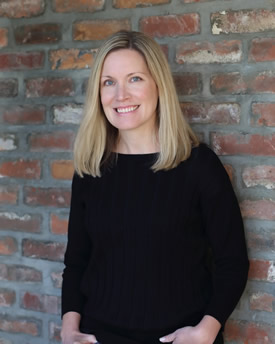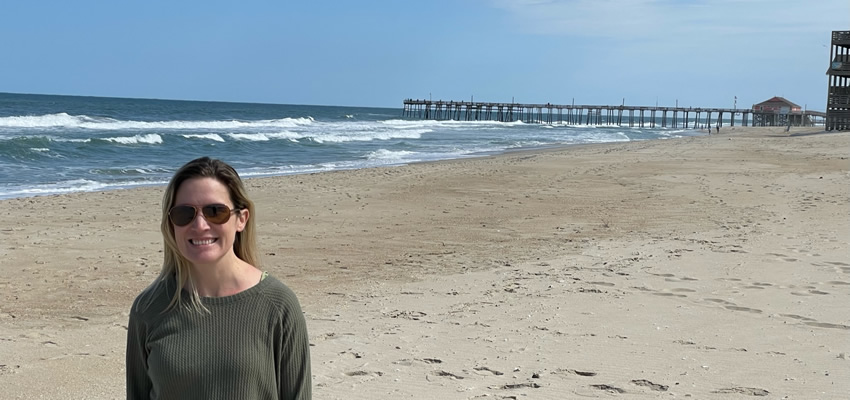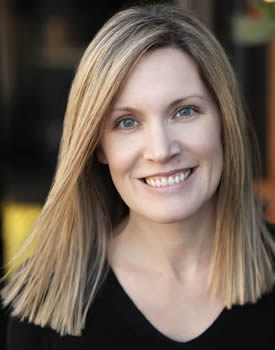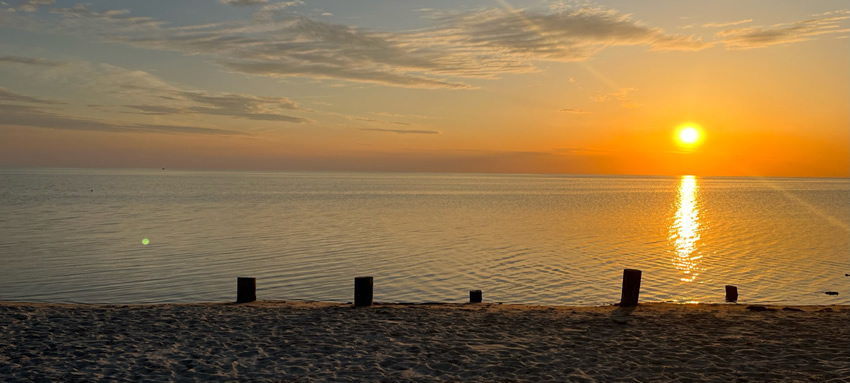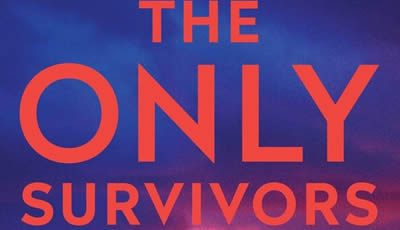

Up Close Up Close: Megan Miranda
Could You Choose Who Lives and Who Dies?
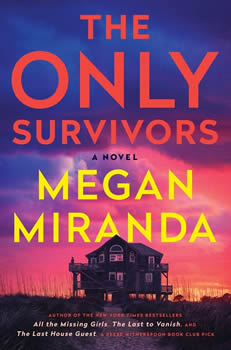 By K.L. Romo
By K.L. Romo
Ten years. That’s how long they’ve kept the secret, returning every anniversary in May to make sure everyone who made it through is still OK. And to make sure no one breaks the pact.
Using a horrible accident as a backdrop in her newest thriller, THE ONLY SURVIVORS, bestselling author Megan Miranda dares readers to consider, “what would I do?”
A decade ago, two vans carried high school seniors on a community service road trip. But after a wrong turn and a fierce thunderstorm, both vans crashed into the roiling river. One was swept away and the other rested precariously on a tree root. Survivor Cassidy Bent brought as many classmates as she could to shore, saving them from being washed away with the van only minutes later.
As the uninjured tended to the wounded, they heard the gushing sounds from the river getting louder, and they knew floodwaters would drown them if they didn’t do something. The question loomed in the rain and mud: should they try to save the injured or save themselves?
There were nine of them, at least the ones who made it out of that ravine. They didn’t intend to lie about the circumstances, but that’s what happened.
Now, every year on the anniversary of the accident, they meet at the same house on the Outer Banks of North Carolina to check in with each other. Clare committed suicide after a year, and another of them died only months before this year’s trip. The remaining seven must make sure everyone is safe, and everyone still commits to keeping their secret.
In every situation, Cassidy still asks herself, “if something happens, who do I save?” Is it simply survivors’ guilt that plagues them, or something more nefarious? Cassidy has tried to distance herself from the group, but it always pulls her back in. Will they ever be able to put the past behind them?
But this year is different—thick tension fills the air between them. It appears someone is talking, and one of them will get the shock of their lives.
Miranda explores the themes of trauma, loyalty, the stress of survivors’ guilt, and the burden of keeping deadly secrets. Alternating between the present and that terrible night 10 years before, Miranda catapults readers onto the muddy banks of a tumultuous river that is minutes away from washing everyone away. Like Cassidy, we must ask ourselves, “who would we save if we couldn’t save everyone?”
Here, Miranda talks with The Big Thrill about what inspired the story, the weight of survivors’ guilt, and the primal instinct to stay alive.
What was your inspiration for the story in THE ONLY SURVIVORS?
The first inspiration point for this book happened on a vacation the year before: my family was walking on the beach when a phone washed up in the surf at their feet. They could surprisingly boot it up after charging it, and tracked down its owner, who had lost it in the water while on a trip two weeks earlier. Meanwhile, the thriller writer in me became convinced we had stumbled upon a piece of evidence in a crime… which then had me thinking about who might be at the center of a story like this, and how the layers between the people who both lost and found the phone could be interconnected.
The story goes in a very different direction from that inspiration point, though. I was interested in exploring how the same life-changing event can impact the group of people who experience it in completely different ways, contrasting who they were in scenes from the past with the people they’ve now become in the present.
How does survivor’s guilt manifest itself in the story, and how does a person deal with it?
The groups’ collective survival—and the guilt that follows them—forms the backbone of who each of these characters has since become. It’s the moment that has impacted each of their lives, and they agree to come together each year because of it—to keep one another safe, so they claim. But each character has dealt with it in very different ways. This was something I was really interested in exploring—how the tragedy continually binds them together, but how their reactions have also fully diverged from that singular point in time.
How does a person decide if they should leave someone else behind to save themselves?
I don’t know, and that was part of the discovery process of writing a story like this. From a removed perspective, we can all say one thing. But who really knows what someone will do until put in that impossible situation? In a thriller, you take these questions and push them to an extreme.
These are truly impossible decisions, and one thing I was interested in was how different people react to the same horrible moment, with different decisions and perspectives. And then, how they continue to move forward—or not—from these same moments.
How do secrets and lies bind people together? Does being together give strength and healing to a group, or does it just reopen wounds from trauma they’re trying to forget?
I think the characters in the book would say both. They are the only ones who truly understand one another and know what they each went through. And therefore, there is some comfort in that. But coming together is also trapping them with the memories so many of them are fighting to leave behind. This reunion, which was supposed to act as a refuge for them, in some ways also works as a trap. The secrets bind them to one another—but also to the past.
What is the biggest difference between writing for a young adult audience and writing for adults?
Honestly, I don’t approach them much differently. To me, the only way they differ is by the perspective. I write both types of books in first person, so it really comes down to seeing the events through specific filters: someone experiencing things for the first time, as in a young adult book, versus a narrator who is filtering these things through their years of lived experience, and the perspective that has given them.
Because of this, I find my adult books also focus more heavily on the past, and what brought these characters to these moments in time. And there’s also a difference in voice. But both things are more a result of the perspective of the narrator.
What advice can you give other writers?
The advice I always give is to read broadly, and to think about what keeps you invested in or personally connects you to a story. Then to embrace your unique voice, interests, perspective… I think those are ultimately the things that set us each apart and resonate with others.
Can you share a teaser about your next novel?
I don’t want to say too much yet, as I’m still working on it. But this new one takes place in a small town (like a lot of my books), set around a lake, and surrounded by the woods.
Tell us something about yourself your fans might not already know.
In real life, I love every setting I write about, before turning them creepy and ominous in my books. The beach, the mountains, the woods—these are all my favorite places to visit. I usually find them very calming and peaceful!
- Flora Carr - March 29, 2024
- The Big Thrill Recommends: EVERYONE IS WATCHING by Heather Gudenkauf - March 29, 2024
- B.A. Paris - February 22, 2024

